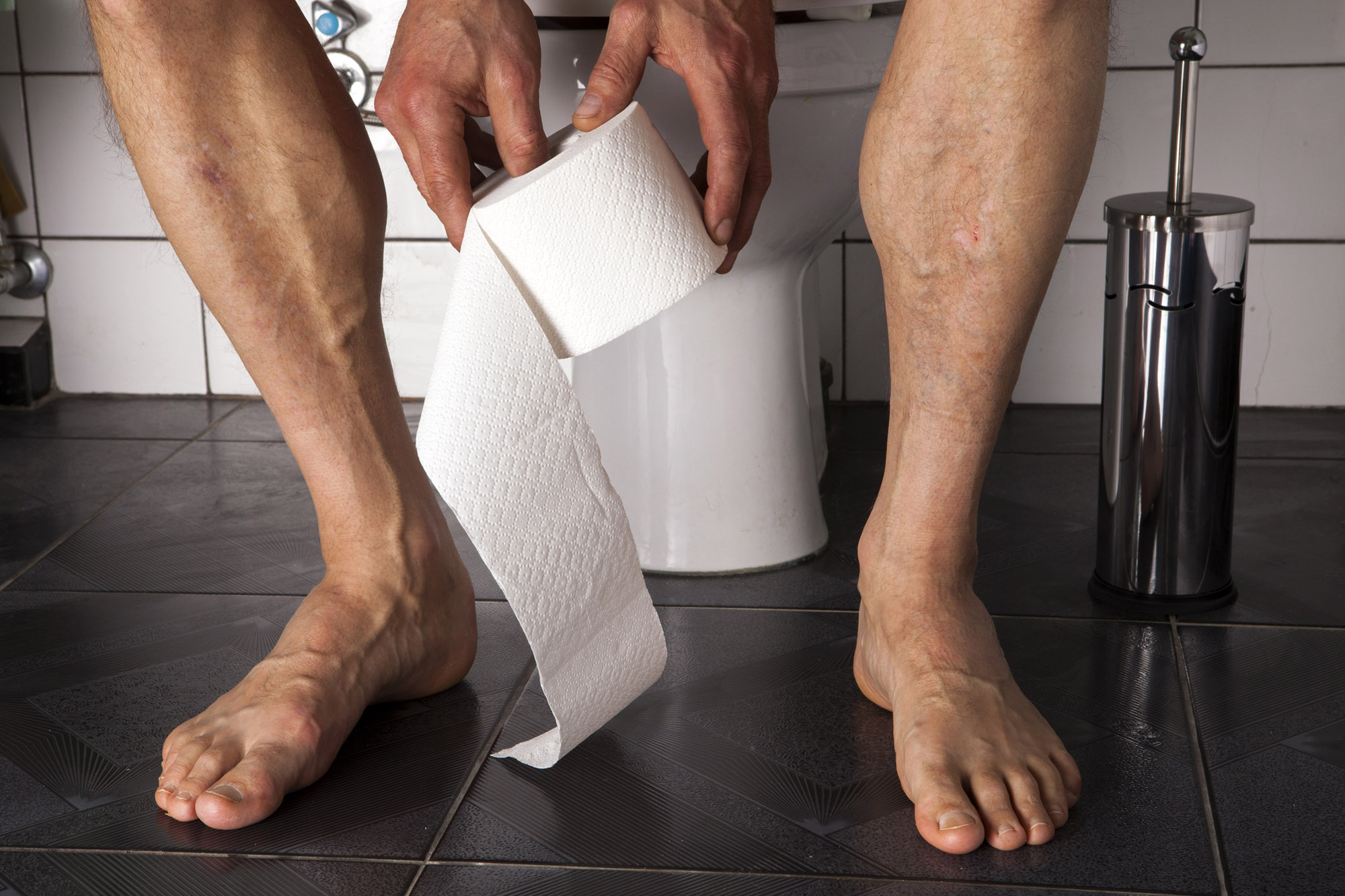

FAQs
How To Force A Fart Out
Modified: August 5, 2023
Learn effective methods for forcing a fart out naturally and relieving discomfort. Find answers to general questions and discover helpful tips for better digestive health.
(Many of the links in this article redirect to a specific reviewed product. Your purchase of these products through affiliate links helps to generate commission for Under-tec.com, at no extra cost. Learn more)
Table of Contents
Introduction
Farting, also known as flatulence, is a natural bodily function that can sometimes be embarrassing or uncomfortable. It is caused by the release of gas from the digestive system through the rectum. While many people experience regular and effortless farting, there may be times when you feel the need to force a fart out in order to relieve bloating or discomfort.
In this article, we will explore various methods to help you force a fart out when needed. From natural ways to encourage flatulence to dietary changes, lifestyle tips, and even specific remedies and exercises, we will cover a range of options to help you find relief.
It’s important to note that excessive gas or difficulty in passing gas may be a symptom of an underlying digestive issue. If you experience chronic or severe gas, it is recommended to consult with a healthcare professional to rule out any potential medical conditions.
Now, let’s delve into the world of farting and discover effective ways to help release that gas!
Understanding Farting
Farting is a natural and necessary bodily function that occurs when excess gas builds up in the digestive system. This gas is primarily composed of nitrogen, oxygen, carbon dioxide, hydrogen, and methane. When the gas cannot be absorbed or reabsorbed by the body, it needs to be expelled.
The digestive process starts in the stomach, where food is broken down into smaller particles. As it moves through the digestive tract, it encounters various enzymes and bacteria that continue to break it down further. This process produces gas as a byproduct, which then accumulates in the intestines.
When the gas builds up enough pressure, it needs to be released. This is where farting comes into play. The muscles surrounding the rectum relax, allowing the gas to escape through the anus. The sound of a fart is caused by the vibrations of the anal opening as the gas passes through.
It’s important to note that farting is a normal and healthy bodily function. On average, a person passes gas anywhere from 13 to 21 times a day. The frequency can vary depending on factors such as diet, digestive health, and individual differences. Some people may produce more gas due to certain foods, while others may have a slower digestive system that leads to increased gas buildup.
While farting is generally harmless, it can sometimes cause discomfort or embarrassment, especially in social situations. In the next sections, we will explore various methods to help encourage flatulence and relieve any built-up gas.
Natural Ways to Encourage Flatulence
If you’re feeling bloated or uncomfortable due to gas buildup, there are several natural methods you can try to encourage flatulence and relieve the pressure. These methods involve simple techniques that can help stimulate the digestive system and promote the release of gas.
1. Walking and Movement: Engaging in physical activity such as walking or light exercise can help get your digestive system moving. Physical movement can stimulate the muscles in your abdomen, promoting the passage of gas through the digestive tract.
2. Abdominal Massage: Gently massaging your abdomen in a clockwise direction can aid in relieving gas. Use your fingertips to apply light pressure in circular motions around your belly button. This can help stimulate the muscles and encourage the release of trapped gas.
3. Peppermint or Ginger Tea: Both peppermint and ginger have been traditionally used to alleviate digestive discomfort. Sipping on a warm cup of peppermint or ginger tea can help relax the muscles in your digestive tract and aid in the expulsion of gas.
4. Deep Breathing: Taking slow, deep breaths can help relax your diaphragm muscles and relieve gas. Sit in a comfortable position and inhale deeply through your nose, filling your belly. Exhale slowly through your mouth, allowing the air to escape. Repeat this deep breathing exercise several times.
5. Warm Compress: Applying a warm compress to your abdomen can help soothe any abdominal discomfort and stimulate digestion. Soak a towel in warm water, wring out the excess moisture, and place it on your stomach for several minutes.
Remember, these natural methods may not provide instant relief and might work better for mild bloating or discomfort. If you’re experiencing chronic or severe gas, it’s best to consult with a healthcare professional to rule out any underlying issues.
Dietary Changes to Promote Gas Release
The food we eat plays a significant role in the production of gas in our digestive system. By making some dietary changes, you can help promote the release of gas and reduce bloating. Here are some tips:
1. Increase Fiber Intake: Gradually increase your consumption of fiber-rich foods, such as fruits, vegetables, whole grains, and legumes. Fiber helps regulate bowel movements and can aid in the passage of gas. However, it’s important to increase fiber intake gradually to avoid excessive gas and bloating initially.
2. Be Mindful of Gas-Producing Foods: Certain foods are known to produce more gas than others. These include beans, lentils, broccoli, cabbage, onions, garlic, Brussels sprouts, and carbonated drinks. While these foods can be healthy, regulating your intake or finding alternative options can help reduce gas production.
3. Chew Food Thoroughly: Properly chewing your food allows it to be broken down more efficiently in the mouth, reducing the amount of air you swallow while eating. This can help minimize gas production and aid in digestion.
4. Avoid Eating Too Quickly: Eating too quickly can cause you to swallow excess air, leading to increased gas. Take your time and enjoy your meals at a slower pace. Eating in a relaxed environment and practicing mindful eating can also help promote better digestion.
5. Stay Hydrated: Drinking an adequate amount of water throughout the day can help keep your digestive system running smoothly. Water helps soften stool and prevent constipation, which can contribute to gas buildup.
6. Keep a Food Diary: If you suspect that certain foods may be causing excessive gas, keeping a food diary can help you identify and avoid those triggers. Note down what you eat and any symptoms you experience, making it easier to pinpoint problematic foods.
Remember, everyone’s digestive system is unique, and what works for one person may not work for another. It’s important to experiment with dietary changes and observe how your body reacts. If you have any concerns or experience persistent gas, consulting with a healthcare professional or a registered dietitian can provide personalized guidance.
Lifestyle Tips for Relieving Gas
In addition to dietary changes, certain lifestyle habits and practices can help relieve gas and prevent its buildup. Incorporating these tips into your daily routine can promote better digestion and reduce discomfort:
1. Stay Active: Regular physical activity not only benefits your overall health, but it can also aid in digestion and prevent gas buildup. Engage in activities such as walking, jogging, cycling, or yoga to keep your digestive system functioning optimally.
2. Practice Stress Management: Stress can have a negative impact on your digestive system, leading to increased gas and bloating. Incorporate stress management techniques into your daily routine, such as deep breathing exercises, meditation, or engaging in activities that help you relax and unwind.
3. Avoid Smoking and Excessive Alcohol Consumption: Smoking and excessive alcohol consumption can contribute to gas and digestive issues. Quitting smoking and moderating your alcohol intake can improve your overall digestive health and reduce gas buildup.
4. Avoid Tight Clothing: Wearing tight-fitting clothing, especially around the abdomen, can put pressure on your digestive system and contribute to gas and bloating. Opt for loose, comfortable clothing that allows your abdomen to expand naturally.
5. Avoid Chewing Gum and Drinking Through a Straw: Chewing gum and drinking through a straw can cause you to swallow excess air, leading to increased gas. Limit the use of these habits to minimize the amount of air you ingest.
6. Maintain Regular Meal Times: Establishing regular meal times and sticking to them can help regulate your digestive system. This consistency provides your body with a routine for digestion and can prevent gas buildup.
7. Avoid Carbonated Beverages: Carbonated drinks contain bubbles that can cause gas to accumulate in your digestive system. Limit your consumption of carbonated beverages to reduce the likelihood of excessive gas.
By incorporating these lifestyle tips into your routine, you can support a healthy digestive system and reduce the discomfort caused by gas buildup. If you continue to experience persistent gas or digestive issues, it’s advisable to seek medical advice to rule out any underlying conditions.
Remedies and Exercises to Force a Fart
When you’re feeling the need to force a fart to relieve discomfort, there are several remedies and exercises you can try to help stimulate gas release. These techniques focus on creating movements or pressure in your abdomen to encourage the passage of trapped gas:
1. Knee-to-Chest Exercise: Lie on your back and bring both knees towards your chest. Hold this position for a few seconds, then release. Repeat this exercise several times to apply gentle pressure to your abdomen, which can help move the gas along and potentially stimulate a fart.
2. Gas-Relief Pose: This yoga pose, also known as “Pawanmuktasana” or “Wind-Relief Pose,” can help alleviate gas and bloating. Start by lying on your back and bring one knee towards your chest. Hug it with both hands and hold for a few seconds. Release and repeat with the other knee. This pose helps compress the abdomen, stimulating the release of gas.
3. Wind-Relieving Massage: Apply gentle pressure to certain areas of your abdomen to help relieve trapped gas. Place your palm below your navel and massage in a clockwise circular motion for a few minutes. Gradually move your hand up towards your ribs and continue the massage. This can help stimulate the digestive system and allow trapped gas to escape.
4. Over-the-Counter Remedies: There are over-the-counter remedies available, such as simethicone, that can help break up gas bubbles in your digestive system. These medications can provide temporary relief from gas and bloating. However, it’s important to consult with a healthcare professional before using any medications.
5. Fennel Tea: Fennel tea has been traditionally used to relieve digestive issues, including gas. You can brew a cup of fennel tea by steeping fennel seeds in hot water for a few minutes. Sip on this herbal tea to help soothe your digestive system and promote the release of gas.
Remember, forcing a fart should only be done when necessary and for temporary relief. If you continue to experience excessive or chronic gas, it’s advisable to consult with a healthcare professional to rule out any underlying conditions and receive proper guidance.
When to Seek Medical Help
While occasional gas is a normal part of digestion, there are instances when you should consider seeking medical help for persistent or severe gas-related symptoms. Here are some signs that may indicate the need for medical attention:
1. Chronic or Excessive Gas: If you consistently experience excessive gas and bloating that doesn’t improve with lifestyle changes, it’s advisable to consult with a healthcare professional. They can help determine the underlying cause and develop an appropriate treatment plan.
2. Severe Abdominal Pain: If you experience severe abdominal pain accompanied by gas and bloating, it could be a sign of a more serious underlying condition, such as a gastrointestinal obstruction or infection. Seek immediate medical help in such cases.
3. Changes in Bowel Habits: If you notice significant changes in your bowel habits, such as persistent constipation, diarrhea, or stools that are black or bloody, it’s important to seek medical attention. These changes may indicate an underlying digestive disorder that requires proper evaluation and treatment.
4. Unintentional Weight Loss: If you’re losing weight without trying, it could be a sign of an underlying health issue. Unexplained weight loss, combined with gas and other digestive symptoms, should prompt you to consult with a healthcare professional.
5. Persistent Digestive Symptoms: If you experience persistent digestive symptoms such as abdominal pain, bloating, gas, and changes in bowel movements that last for more than a few weeks, it’s advisable to seek medical help. These symptoms may be indicative of an underlying condition that requires medical evaluation.
It’s important to remember that everyone’s digestive system is unique, and what may be normal for one person may not be for another. If you have concerns about your gas symptoms or overall digestive health, it’s always a good idea to consult with a healthcare professional who can provide a proper diagnosis and recommend appropriate treatment options.
Conclusion
Farting, though sometimes considered embarrassing or uncomfortable, is a natural bodily function that helps release excess gas from the digestive system. However, there may be instances when you need to force a fart to relieve bloating and discomfort. By incorporating natural ways to encourage flatulence, making dietary changes, and practicing certain lifestyle habits, you can promote better digestion and reduce gas buildup.
Incorporating regular physical activity, practicing stress management, and avoiding habits that contribute to excessive gas can make a significant difference. Additionally, being mindful of your diet and making gradual increases in fiber intake can help regulate your digestive system and alleviate gas-related symptoms.
When needed, specific remedies and exercises can be helpful in stimulating the release of trapped gas. From knee-to-chest exercises and abdominal massages to over-the-counter remedies and herbal teas, these techniques can provide temporary relief. However, it’s important to consult with a healthcare professional if you experience chronic or severe gas or if your symptoms are accompanied by other concerning signs.
Remember that everyone’s digestive system is unique, and what works for one person may not work for another. It may take some trial and error to find what methods and approaches work best for you. Ultimately, creating a well-rounded approach that combines natural techniques, dietary changes, and lifestyle habits will provide you with a better chance of managing and relieving gas-related discomfort.
Take the time to listen to your body, make informed choices about your diet and lifestyle, and seek medical help when necessary. With a balanced approach, you can find relief from gas-related symptoms and promote a healthier and more comfortable digestive system.










